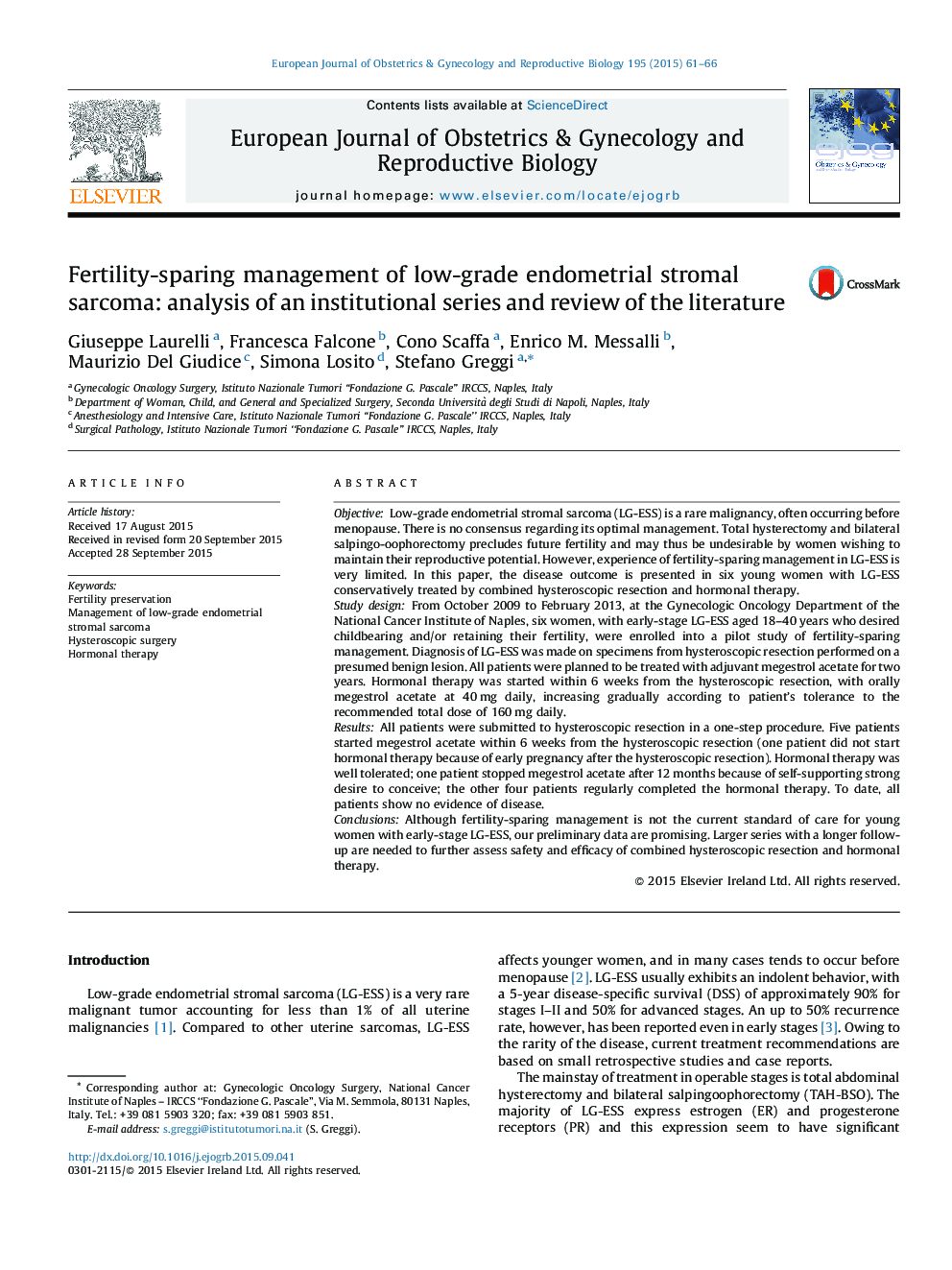| کد مقاله | کد نشریه | سال انتشار | مقاله انگلیسی | نسخه تمام متن |
|---|---|---|---|---|
| 3919568 | 1599786 | 2015 | 6 صفحه PDF | دانلود رایگان |
ObjectiveLow-grade endometrial stromal sarcoma (LG-ESS) is a rare malignancy, often occurring before menopause. There is no consensus regarding its optimal management. Total hysterectomy and bilateral salpingo-oophorectomy precludes future fertility and may thus be undesirable by women wishing to maintain their reproductive potential. However, experience of fertility-sparing management in LG-ESS is very limited. In this paper, the disease outcome is presented in six young women with LG-ESS conservatively treated by combined hysteroscopic resection and hormonal therapy.Study designFrom October 2009 to February 2013, at the Gynecologic Oncology Department of the National Cancer Institute of Naples, six women, with early-stage LG-ESS aged 18–40 years who desired childbearing and/or retaining their fertility, were enrolled into a pilot study of fertility-sparing management. Diagnosis of LG-ESS was made on specimens from hysteroscopic resection performed on a presumed benign lesion. All patients were planned to be treated with adjuvant megestrol acetate for two years. Hormonal therapy was started within 6 weeks from the hysteroscopic resection, with orally megestrol acetate at 40 mg daily, increasing gradually according to patient's tolerance to the recommended total dose of 160 mg daily.ResultsAll patients were submitted to hysteroscopic resection in a one-step procedure. Five patients started megestrol acetate within 6 weeks from the hysteroscopic resection (one patient did not start hormonal therapy because of early pregnancy after the hysteroscopic resection). Hormonal therapy was well tolerated; one patient stopped megestrol acetate after 12 months because of self-supporting strong desire to conceive; the other four patients regularly completed the hormonal therapy. To date, all patients show no evidence of disease.ConclusionsAlthough fertility-sparing management is not the current standard of care for young women with early-stage LG-ESS, our preliminary data are promising. Larger series with a longer follow-up are needed to further assess safety and efficacy of combined hysteroscopic resection and hormonal therapy.
Journal: European Journal of Obstetrics & Gynecology and Reproductive Biology - Volume 195, December 2015, Pages 61–66
